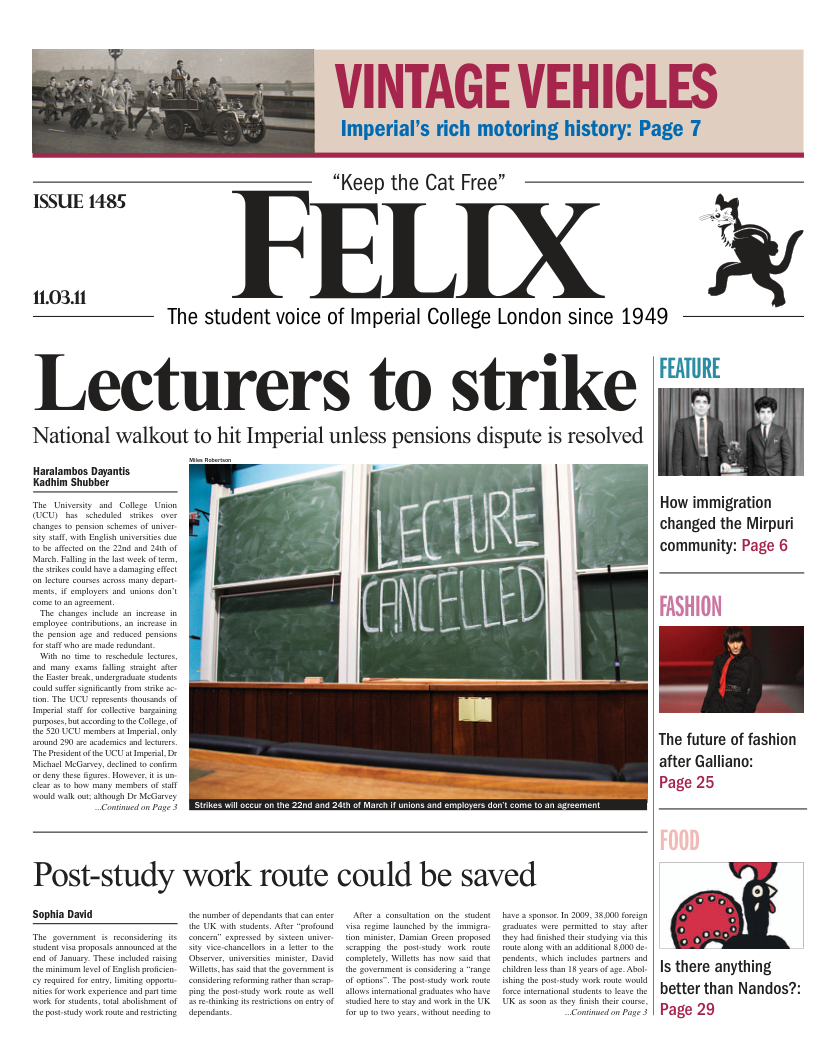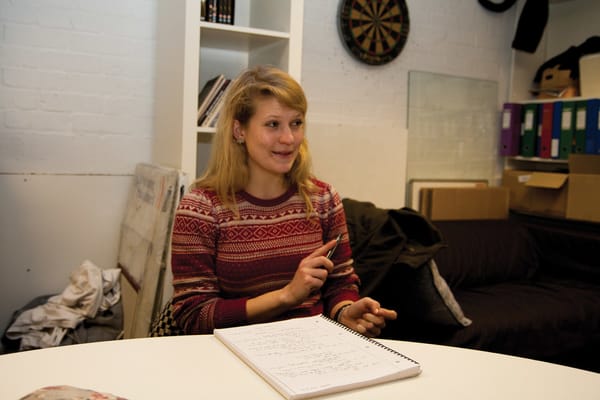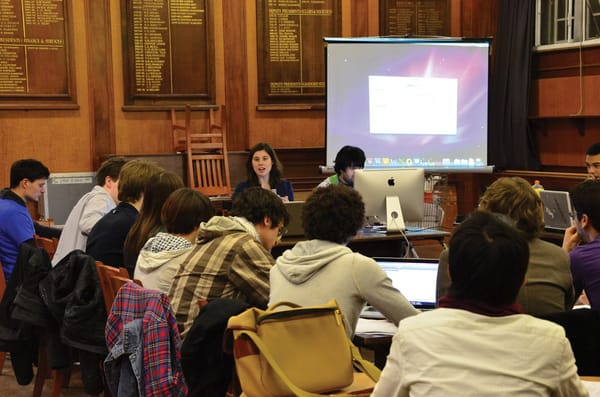Post-study work route could be saved
David Willetts suggests that government is considering reforming, not scrapping, the post-study work route

The government is reconsidering its student visa proposals announced at the end of January. These included raising the minimum level of English proficiency required for entry, limiting opportunities for work experience and part time work for students, total abolishment of the post-study work route and restricting the number of dependants that can enter the UK with students. After “profound concern” expressed by sixteen university vice-chancellors in a letter to the Observer, universities minister, David Willetts, has said that the government is considering reforming rather than scrapping the post-study work route as well as re-thinking its restrictions on entry of dependants.
After a consultation on the student visa regime launched by the immigration minister, Damian Green proposed scrapping the post-study work route completely, Willetts has now said that the government is considering a “range of options”. The post-study work route allows international graduates who have studied here to stay and work in the UK for up to two years, without needing to have a sponsor. In 2009, 38,000 foreign graduates were permitted to stay after they had finished their studying via this route along with an additional 8,000 dependents, which includes partners and children less than 18 years of age. Abolishing the post-study work route would force international students to leave the UK as soon as they finish their course, leaving them with no opportunity to acquire valuable work experience.
“There may be ways we can tighten it up and make sure it is not abused by becoming a route to settlement. There are a whole range of options between complete closure of the route and the status quo and we are discussing with the Home Office what these options might be,” said Willetts.
The post-study work route currently enhances the UK’s overall offer to international students and universities have expressed concern that scrapping the scheme will make them less competitive with other countries in attracting students. Dr Wendy Platt, director general of the Russell Group of universities, said that, “If we do not offer international UK university graduates the opportunity to work for a short period in highly skilled jobs, some of the world’s brightest students will choose to study elsewhere.”
After Damian Green argued that the student visa system was subject to “widespread abuse” and said that the government would limit the number of dependants entering the UK with students, David Willetts now indicates that these proposals are also still under consideration. He questions “to what extent does people’s ability to bring in dependants affect their own willingness to come to study?”
University vice-chancellors have also argued that a visa reduction would have devastating consequences for the funding of higher education in the UK, even forcing the typically more expensive science and engineering courses to close. Data from the government’s Higher Education Funding Council for England also indicates that universities are increasingly reliant on fees from foreign students to boost their finances. Imperial is a notorious example, charging international fees of up to £26,250 whilst fees for British and EU students are capped at £3,290 this academic year (rising to £9000 from 2012). Despite the 3934 students from outside the EU making up less than half of the student population enrolled in 2009, their fees generate twice as much income: £75.1m to be precise, compared with the £31.3m from the 9539 UK/EU students.
The proposals to reduce the number of student visas form part of a major coalition pledge to reduce net migration from “hundreds of thousands to tens of thousands” by 2015. With two-thirds of non-EU migrants entering the UK on student visas, tightening this system is a crucial part of the strategy.
“This government want to ensure that the primary reason for those who enter on a student visa is genuinely to come here to study. We are working closely with the Department for Business and will make an announcement in due course,” a spokesperson for the Home Office said.
University and Colleges Union general secretary, Sally Hunt has recognised the reconsiderations as “encouraging” but claims that “we have a long way to go before anything this government is doing to higher education could be considered welcomed.”









